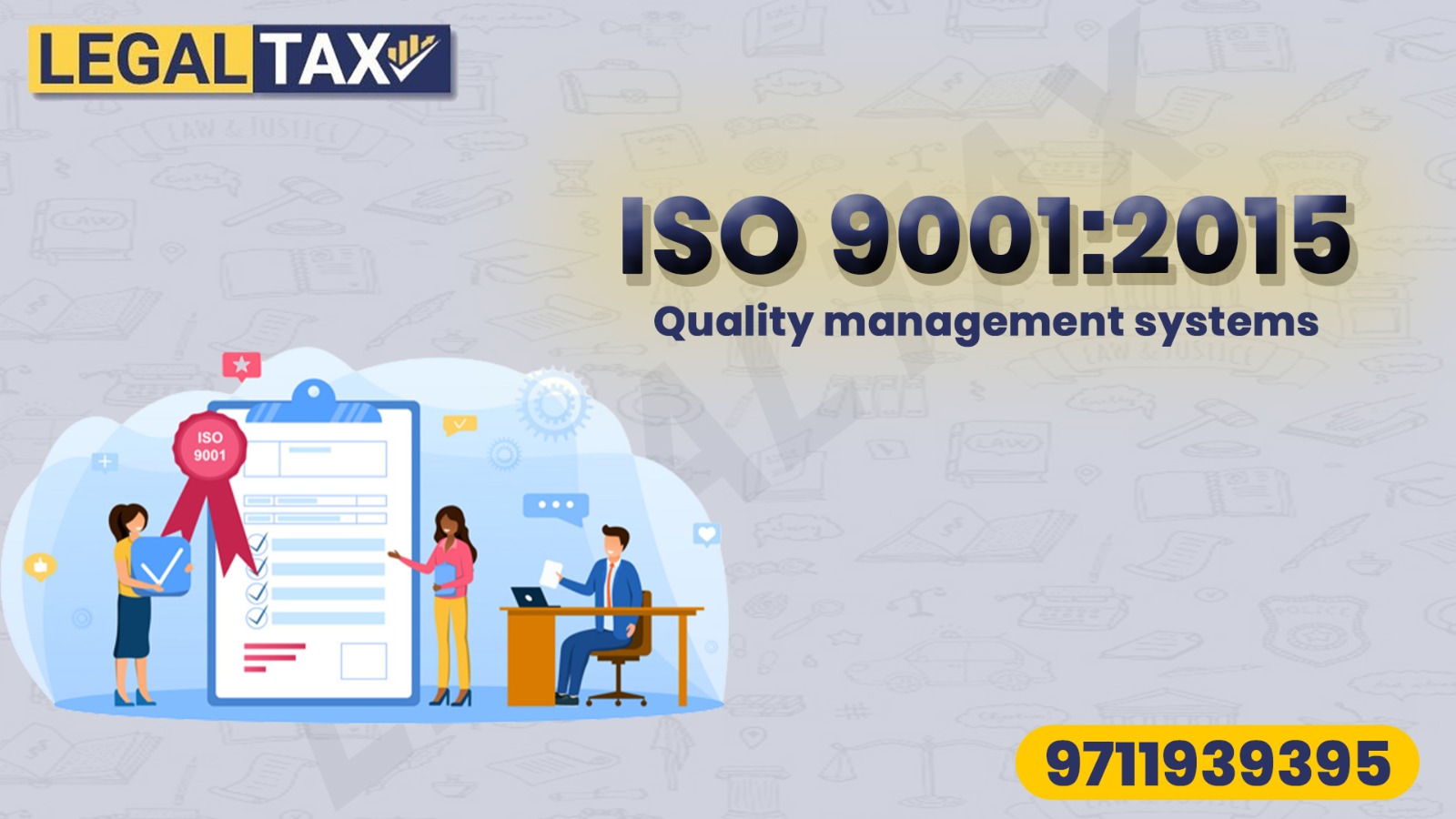ISO 9001:2015 is a globally recognized standard for quality management systems (QMS). It provides a framework for organizations to establish, implement, maintain, and continually improve their quality management systems.
The standard is based on a set of principles that include customer focus, leadership, engagement of people, process approach, improvement, evidence-based decision making, and relationship management. These principles form the foundation of an effective QMS that enables organizations to consistently meet customer requirements, enhance customer satisfaction, and improve their overall performance.
The ISO 9001:2015 standard requires organizations to establish a quality policy, define quality objectives, and implement procedures and processes to achieve these objectives. It also requires organizations to monitor and measure their performance, analyze data to identify opportunities for improvement, and take corrective and preventive actions to address issues and prevent their recurrence.
Certification to ISO 9001:2015 is voluntary and can be obtained through an accredited certification body. It demonstrates an organization’s commitment to quality and provides assurance to customers and stakeholders that its products and services meet their requirements and expectations.
There are several reasons why an organization may choose to implement and seek certification to ISO 9001:2015:
- Customer requirements: Many customers require their suppliers to be certified to ISO 9001:2015 as a condition of doing business. Certification provides assurance to customers that an organization has established and implemented an effective quality management system that ensures consistent delivery of products and services that meet customer requirements.
- Improved processes and performance: Implementing ISO 9001:2015 requires organizations to establish and implement processes and procedures to manage their operations effectively. This leads to improved process efficiency, reduced waste, and better control over the quality of products and services.
- Competitive advantage: Certification to ISO 9001:2015 can give organizations a competitive advantage by demonstrating their commitment to quality, which can differentiate them from their competitors and help them win business.
- International recognition: ISO 9001:2015 is a globally recognized standard, and certification can demonstrate an organization’s commitment to meeting international standards and best practices.
- Continuous improvement: The ISO 9001:2015 standard emphasizes the need for continuous improvement, which helps organizations to identify and address issues, improve their performance, and stay ahead of the competition.
Benefits of ISO 9001:2015 Certification in India
ISO 9001:2015 certification provides numerous benefits for organizations in India, including:
- Increased Customer Satisfaction: By implementing an ISO 9001:2015 compliant QMS, organizations can ensure that they consistently meet customer requirements and expectations. This can lead to increased customer satisfaction and loyalty.
- Improved Operational Efficiency: ISO 9001:2015 emphasizes the importance of process management and continuous improvement. By implementing these principles, organizations can improve their operational efficiency and reduce waste.
- International Recognition: ISO 9001:2015 is a globally recognized standard for quality management. By achieving certification, organizations can demonstrate their commitment to quality and gain international recognition.
- Competitive Advantage: ISO 9001:2015 certification can provide a competitive advantage for organizations in India, particularly when bidding for contracts or competing in international markets.
ISO 9001:2015 Requirements
ISO 9001:2015 sets out a series of requirements for a QMS, including:
- Context of the Organization: The QMS should take into account the organization’s internal and external context, including its stakeholders, regulatory requirements, and the competitive environment.
- Leadership: Top management should demonstrate leadership and commitment to the QMS, including establishing a quality policy, assigning responsibilities, and ensuring that the QMS is integrated into the organization’s overall business strategy.
- Planning: The QMS should include a systematic approach to planning, including setting quality objectives, identifying risks and opportunities, and developing a plan to achieve the objectives.
- Support: The QMS should include resources, infrastructure, and support mechanisms to ensure that the organization can achieve its quality objectives.
- Operation: The QMS should include a series of processes that are designed to achieve the organization’s quality objectives, including design and development, production, service delivery, and customer satisfaction.
- Performance Evaluation: The QMS should include a systematic approach to monitoring and measuring performance, including internal audits, management reviews, and customer feedback.
- Improvement: The QMS should include a systematic approach to continuous improvement, including the identification and implementation of corrective and preventive actions.
ISO 9001:2015 Certification Process in India
The ISO 9001:2015 certification process in India involves the following steps:
Step 1: Preparation
The first step in the ISO 9001:2015 certification process is to prepare for certification. This involves understanding the requirements of the standard, developing a QMS, and identifying any gaps between the QMS and the standard.
Step 2: Internal Audit
The next step is to conduct an internal audit of the QMS. This involves reviewing the QMS to ensure that it meets the requirements of the standard and is functioning effectively. Any gaps identified during the audit should be addressed before proceeding to the next step.
Step 3: Certification Body Selection
Once the QMS has been audited internally, the organization must select a certification body. The certification body will conduct an external audit of the QMS to determine if it meets the requirements of the ISO 9001:2015 standard.
When selecting a certification body, it is essential to choose an organization
In summary, implementing and seeking certification to ISO 9001:2015 can provide numerous benefits, including improved customer satisfaction, process efficiency, competitive advantage, international recognition, and continuous improvement.

